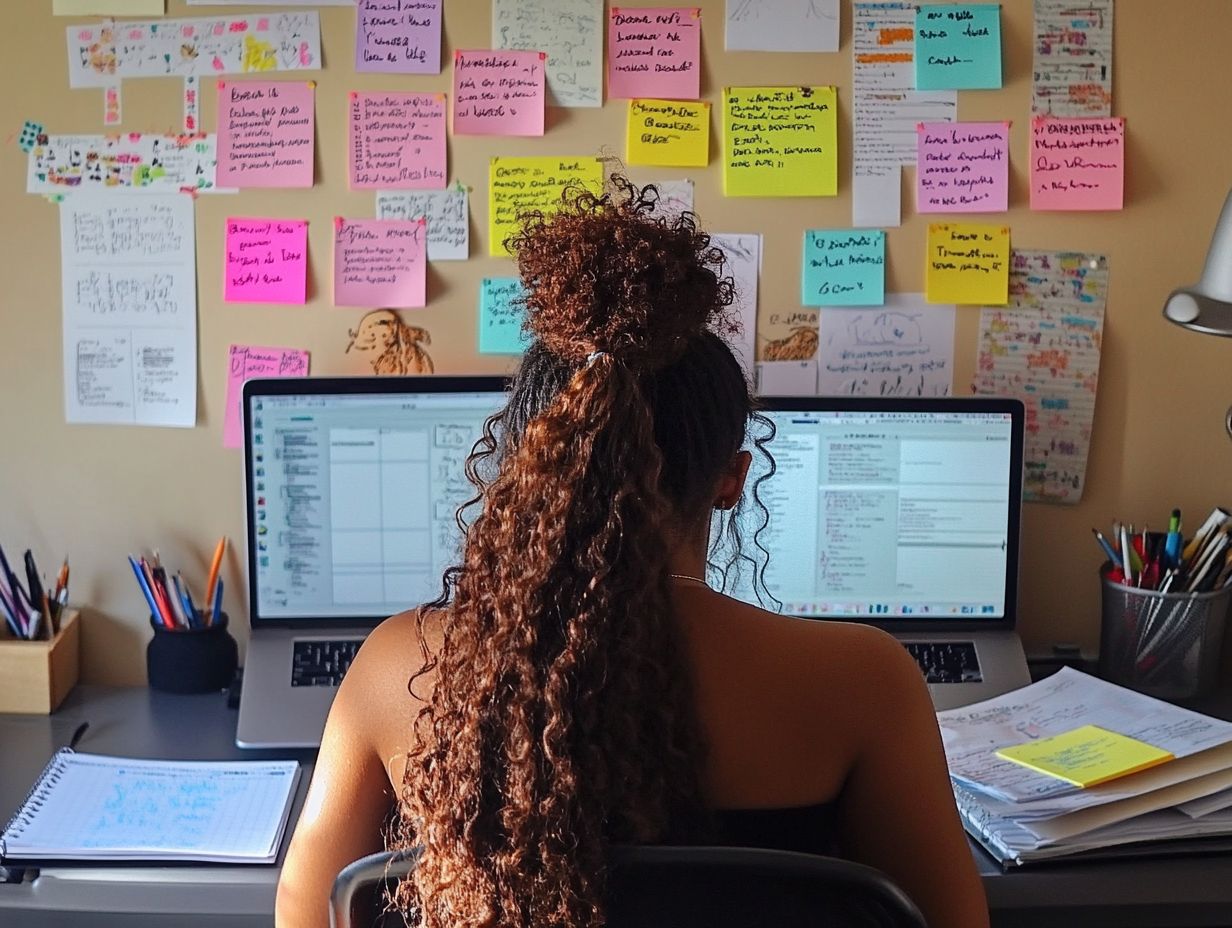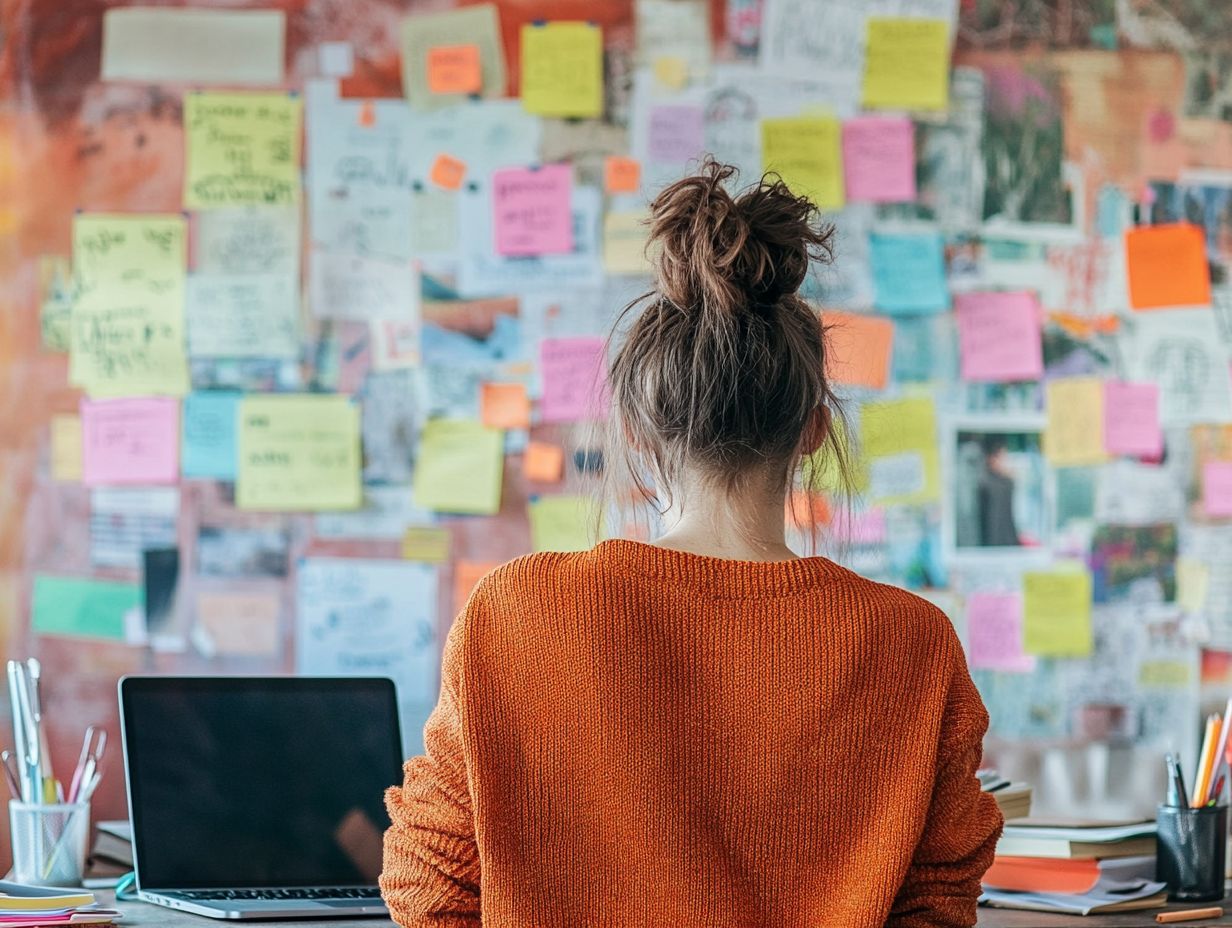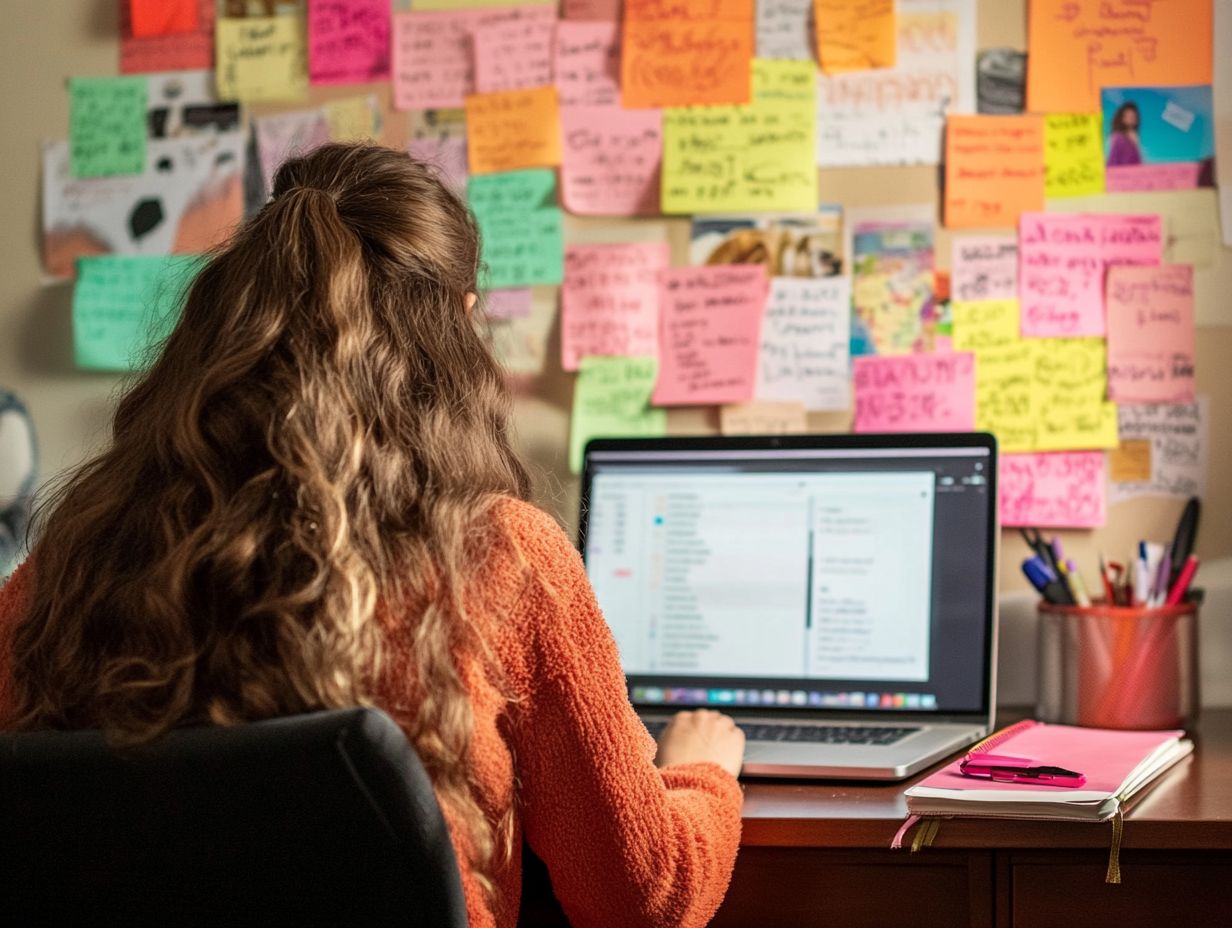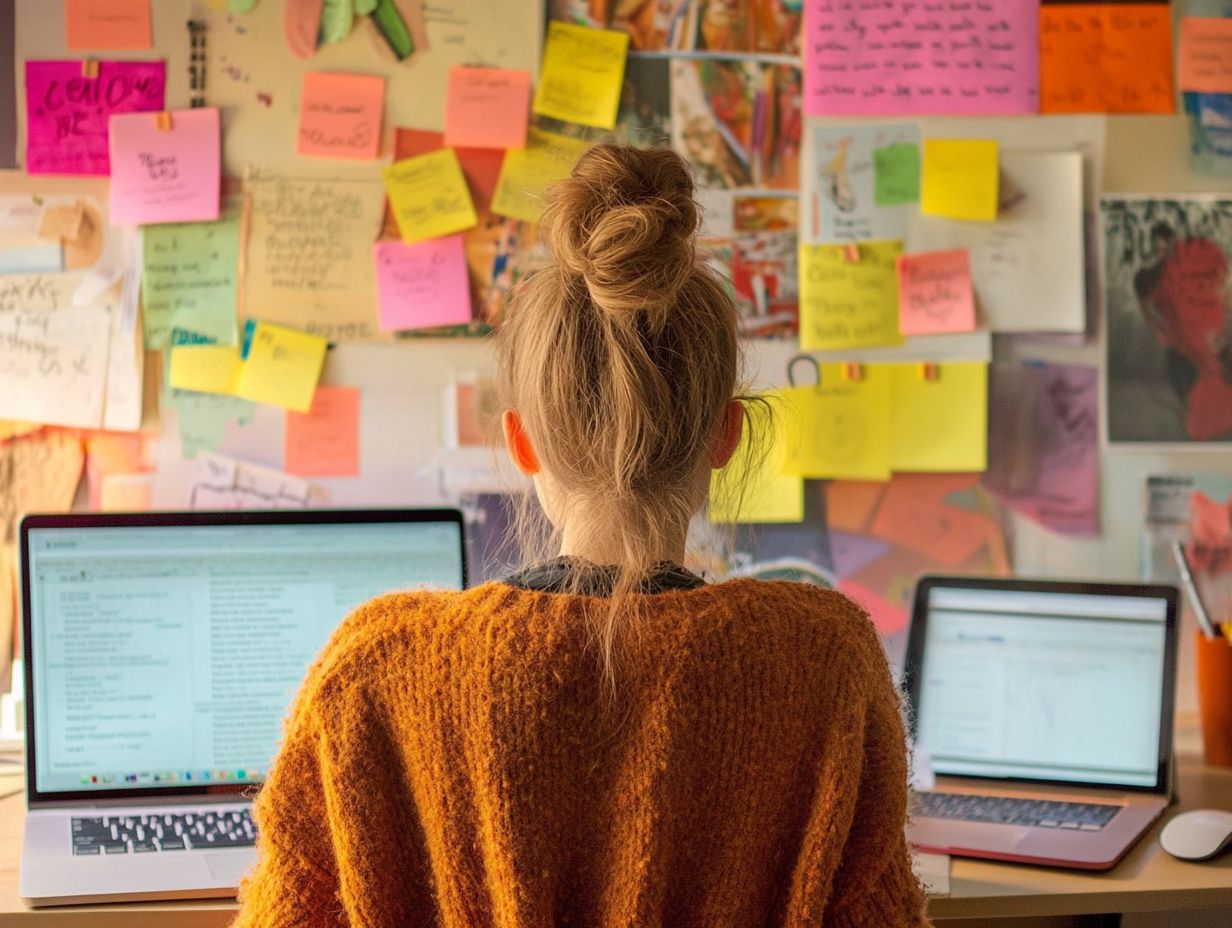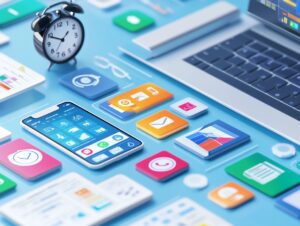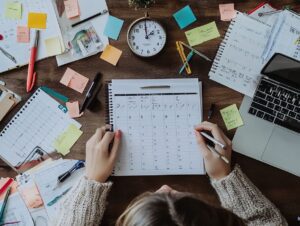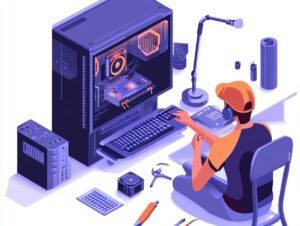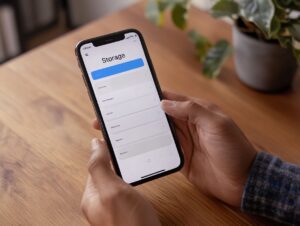Navigating school life can indeed feel overwhelming at times, but implementing the right strategies and life hacks can truly make a difference.
This article presents practical tips and techniques designed to enhance your school experience. From organizational strategies that help you stay on top of your assignments to effective study methods that improve retention, there s a wealth of information to explore. Additionally, you ll find school tips and note-taking strategies to boost your productivity and organization.
You will also find valuable insights on forging connections, managing peer pressure, and prioritizing both your mental and physical well-being.
Prepare to discover how to achieve a more balanced and successful school life, utilizing various classroom efficiency methods and student resources!
What are Life Hacks for School?
School life hacks are insightful strategies designed to improve your productivity and efficiency in academic environments. These techniques can range from straightforward organizational tips to sophisticated study methods that optimize learning outcomes. By implementing effective life hacks, you can streamline your homework processes and enhance your motivation and goal-setting abilities. For more on this, check out maximizing success: life hacks for students. Homework strategies and exam preparation techniques are also vital components of these life hacks.
Utilizing technology tools and educational apps, as well as creating a distraction-free study space, can significantly influence your overall school experience. Additionally, incorporating self-care practices, such as maintaining proper sleep hygiene and choosing healthy snacks, will further sharpen your focus and resilience, making your academic journey more enjoyable. Techniques like resource allocation and concentration exercises can further optimize your study environment.
For instance, setting specific study goals using the SMART criteria Specific, Measurable, Achievable, Relevant, and Time-bound can assist students in staying focused and tracking their progress more effectively. Time management techniques, like the Pomodoro Technique, which involves studying in short bursts followed by breaks, can help prevent burnout and improve information retention.
Utilizing apps such as Trello or Notion for organizing assignments and deadlines provides a clear overview of responsibilities, which can alleviate the anxiety associated with cluttered thinking. Furthermore, practicing mindfulness techniques, such as deep breathing or brief meditation breaks, can help clear the mind, enhancing concentration and reducing stress during exam periods. Digital organization and productivity apps play a significant role in maintaining a streamlined academic life.
Organizational Hacks for School
Organizational hacks for school play a crucial role in establishing a structured and efficient learning environment. When students use effective study schedules and planners, they can prioritize their tasks and manage their time more effectively. Incorporating self-discipline and classroom organization into their routines can further enhance their academic efficiency.
Techniques like color coding and time-blocking can help streamline their workflow, ensuring that important assignments and exams are not overlooked. Furthermore, these strategies encourage active engagement with the material, which can enhance memory retention and improve academic performance. Implementing effective study techniques and test-taking strategies can further boost their academic outcomes.
By incorporating organizational systems into their daily routines, students foster a sense of accountability that ultimately leads to greater success in their educational pursuits. Utilizing project timelines and effective feedback mechanisms can further enhance their organizational skills.
Time Management Tips
Time management tips are essential for students striving to balance their academic responsibilities with extracurricular activities. Successful time management requires prioritization, a clear understanding of deadlines, and the ability to multitask effectively. Integrating time-saving methods and planning strategies can further streamline your daily routines.
To prioritize tasks effectively, students can utilize methods such as the Eisenhower Box, which helps categorize activities based on their urgency and importance. Additionally, implementing a planner whether it be physical or digital can assist in keeping track of assignments, deadlines, and commitments, allowing for a clearer visualization of workloads. Effective project management and task management techniques are also crucial in maintaining an organized schedule.
Setting specific, measurable goals with associated deadlines creates a systematic approach that minimizes procrastination and fosters accountability. By regularly reviewing these goals, students can proactively adjust their schedules to stay on track, ultimately enhancing their overall productivity and performance in both academic and personal pursuits.
Study Techniques
Effective study techniques play a crucial role in mastering material and achieving academic success. The significance of using a variety of approaches cannot be emphasized enough, as techniques that engage different cognitive processes often lead to a deeper understanding and better retention of information. Employing various learning methods and revision strategies can significantly improve your academic results.
For example, active learning methods such as group discussions or project-based assignments encourage students to apply concepts in real-world contexts, which fosters critical thinking. Additionally, memory aids like mnemonic devices and flashcards help reinforce knowledge by simplifying complex subjects into more manageable pieces. Techniques like summarization and bookmarking can further aid in reinforcing key concepts.
Visualization techniques, including mind mapping or diagramming, create mental connections that can significantly enhance recall, especially during high-pressure situations like exams. Ultimately, by integrating these techniques with effective test-taking strategies, such as practice quizzes and proper time management during assessments, students can approach their exams with increased confidence and effectiveness.
Social Hacks for School
Social hacks for school are essential for fostering connections and building a supportive academic community. By developing strong communication skills, students can enhance their ability to make friends and cultivate meaningful relationships with their peers.
Engaging in school clubs or participating in study groups can promote collaboration, enabling students to share knowledge and resources effectively. Nurturing these social networks allows students to benefit from peer support, which is crucial for enhancing motivation and resilience during challenging school years.
Making Friends and Building Connections
Making friends and building connections in school is a valuable experience that greatly contributes to both personal development and academic success. Engaging in school clubs and extracurricular activities offers students the chance to meet peers who share similar interests. Joining peer study groups or participating in collaborative projects can further deepen these connections.
Developing strong social skills is essential, as they enable effective collaboration and communication with classmates. By participating in peer tutoring programs, students can enhance their learning while also fostering lasting friendships that support their educational journey. Engaging in brainstorming sessions and skill development activities can further build their social and academic networks.
To make the most of these opportunities, students should actively pursue clubs that resonate with their passions, whether in art, music, or sports, as these can foster a strong sense of belonging. Practicing active listening and empathy helps cultivate deeper connections with classmates, leading to more meaningful interactions. Engaging in classroom collaboration and interactive learning activities can further strengthen these relationships.
The art of collaboration not only promotes teamwork but also allows individuals to learn from diverse perspectives, enriching their overall social experiences. Being open to new activities and willing to step outside one s comfort zone can result in unexpected friendships and personal growth, ultimately making the school environment more enjoyable and fulfilling. Participating in engagement activities and knowledge sharing sessions can further enhance the collaborative experience.
Dealing with Peer Pressure
Dealing with peer pressure is a notable challenge that many students encounter in school. However, developing resilience can be an effective strategy for navigating these situations. Stress management and focus techniques can also help in managing the pressures related to school life.
Practices such as mindfulness and self-care can significantly enhance confidence, enabling students to make decisions that align with their personal values. Additionally, building a strong support network and engaging in honest communication with peers are crucial in resisting negative influences. By fostering a growth mindset, students can develop the adaptability required to handle social pressures while maintaining their integrity. Developing motivation techniques and practicing critical thinking can further support their resilience.
Students should prioritize recognizing their own values and setting personal goals, as these can serve as a guiding compass during challenging moments. Encouraging involvement in activities that promote self-expression such as sports, art, or clubs can help forge friendships based on shared interests rather than mere conformity. Engaging in creative problem-solving and self-assessment activities can further reinforce personal growth and development.
Moreover, teaching assertive communication techniques can enable individuals to stand firm against peer pressure without alienating themselves from their peers. It is also essential for students to remember that seeking assistance from trusted adults can provide valuable guidance and strengthen their commitment to making choices that reflect their true selves. Practicing effective communication and maintaining academic integrity are key to navigating peer pressure successfully.
Ultimately, creating an environment where open dialogue and respect for individual choices are encouraged can significantly mitigate the effects of peer pressure.
Academic Hacks for School
Academic hacks serve as valuable tools that enable students to enhance their learning experience and reach their educational goals. By cultivating a goal-oriented mindset, students can establish clear objectives and apply effective learning techniques that align with their personal styles. Utilizing virtual learning and adaptive learning platforms can further support their academic endeavors.
Employing test-taking strategies, such as managing time effectively during exams, can significantly boost their performance. Additionally, refining research skills allows students to efficiently navigate online resources and libraries, laying the groundwork for successful projects and assignments. Engaging in revision strategies and utilizing educational videos can further enhance their study routines.
Maximizing Learning and Retention through Innovative Learning Styles
Maximizing learning and retention is essential for achieving academic success, and employing active learning strategies can significantly enhance this process. Techniques such as visualization and brainstorming serve to solidify information in memory, making it easier to recall during assessments. Incorporating study techniques and memory aids can further optimize this approach.
Additionally, seeking feedback from peers and educators fosters continuous improvement and a deeper understanding of subjects. By integrating diverse learning styles and actively engaging with the material, students can cultivate a personalized learning environment that promotes long-term retention and academic excellence. Utilizing learning methods and goal setting also play a crucial role in achieving these outcomes.
This multifaceted approach not only captures students interests but also addresses their individual strengths. Exploring concepts through real-life applications, collaborative projects, and interactive discussions enriches their experience and facilitates more effective information retention. Integrating classroom efficiency and academic planning ensures a comprehensive educational experience.
Utilizing tools like mind maps and infographics enables learners to visualize relationships between ideas, leading to a deeper conceptual understanding. Moreover, incorporating auditory, visual, and kinesthetic elements caters to various preferences and encourages broader engagement with the subject matter. Implementing digital tools and educational apps can further enhance the learning experience.
Ultimately, leveraging these methods can enhance motivation, enable students, and foster a deeper appreciation for the learning experience as a whole. Incorporating study schedules and concentration techniques can also help maintain consistent academic progress.
Test-Taking Strategies
Test-taking strategies play a vital role for students who wish to perform well during assessments and effectively demonstrate their knowledge. Developing exam preparation techniques and utilizing review sessions are key components of these strategies.
These strategies include various methods aimed at optimizing performance on exam day. Acknowledging the importance of thorough preparation, students should develop a comprehensive study schedule that incorporates regular review sessions to reinforce their understanding of the material. Employing revision strategies and memory aids can further enhance their readiness.
Furthermore, mastering time management is essential; students need to practice pacing themselves to avoid spending too much time on any single question. Techniques for maintaining focus, such as deep breathing and mindfulness, can help alleviate anxiety, promoting clearer thinking. Additional focus techniques and concentration methods can be beneficial.
Understanding the structure of the test and experimenting with different question formats through mock exams can significantly diminish uncertainty and boost self-confidence. This combination of preparation and strategic planning enables students to tackle their assessments with assurance. Utilizing online resources and educational videos can also aid in effective exam preparation.
Self-Care Hacks for School
Self-care strategies for students are crucial in maintaining both mental and physical health, especially when faced with academic pressures. Employing stress management techniques and adopting a balanced lifestyle are essential components of effective self-care.
Prioritizing health and wellness through practices such as proper sleep hygiene, regular exercise, and nutritious snacks can greatly enhance focus and productivity. Additionally, incorporating stress relief techniques, such as mindfulness and relaxation exercises, can be effective in managing anxiety and improving overall well-being. Utilizing self-discipline and motivation techniques can further support these efforts.
By acknowledging the significance of self-care, students can cultivate a balanced lifestyle that fosters resilience and supports their academic goals. Incorporating self-care practices and maintaining school-life balance are critical for long-term success.
Maintaining Mental and Physical Health
Maintaining both mental and physical health is crucial for students aiming for academic success. Engaging in self-care practices, such as staying hydrated and choosing healthy snacks, can provide the necessary energy to face daily challenges. Incorporating regular physical activity into one s routine can elevate mood and alleviate stress. Utilizing productivity hacks and time-saving methods can also enhance overall well-being.
It is also important to recognize the signs of mental fatigue and take proactive steps to recharge, as this is vital for sustaining focus and motivation throughout the school year. Implementing stress management techniques and maintaining a consistent study environment can help in this regard.
Students should make it a priority to drink plenty of water throughout the day, as proper hydration is key to cognitive function and overall well-being. A balanced diet that includes fruits, vegetables, whole grains, and lean proteins equips the body with essential nutrients needed for optimal performance. Engaging in at least 30 minutes of moderate exercise most days not only supports physical health but also enhances mental clarity and emotional resilience. Ensuring academic integrity and consistency in these practices contributes to long-term success.
Moreover, it is essential for learners to be mindful of their limits to prevent burnout. When signs of exhaustion arise, they should consider adopting mindfulness techniques, such as meditation or deep-breathing exercises, to promote relaxation and regain focus. Incorporating study breaks and personal development activities can also help in maintaining a healthy balance.
Managing Stress and Burnout
Managing stress and burnout is essential for students who are navigating the demands of school and academic life. By implementing mindfulness techniques like meditation and deep-breathing exercises, students can effectively reduce their stress levels and promote emotional well-being. Developing resilience and adaptability allows students to handle challenges more effectively.
Establishing healthy routines that prioritize self-care and balance can help alleviate feelings of overwhelm. Developing resilience and adaptability allows students to handle challenges more effectively, ensuring that their mental health remains a priority while they pursue their academic goals. Incorporating focus techniques and consistency in these routines is key to maintaining long-term well-being.
Creating a consistent daily schedule that includes time for relaxation, exercise, and social activities is fundamental for fostering a sense of control and predictability. Incorporating brief mindfulness practices into study sessions such as taking short breaks for guided imagery or journaling can help rejuvenate focus. Encouraging self-reflection on personal strengths can further enhance resilience. Additionally, utilizing goal setting and motivational techniques can help students stay on track.
Additionally, open communication about stressors with peers and educators fosters support networks and normalizes the conversation around mental health. Leveraging communication skills and interactive learning methods can further support these efforts.
Together, these strategies enable students to maintain a healthier balance and excel academically. Utilizing study techniques and self-assessment methods can further enhance their academic journey.
Frequently Asked Questions
What are some good life hacks for school?
Some good life hacks for school include creating a study schedule, using flashcards for memorization, and utilizing study groups to review material. Implementing school tips and utilizing productivity apps can also enhance your academic experience.
How can I stay organized and save time with school work?
One way to stay organized and save time with school work is to color-code your notes and assignments. This will help you quickly find what you need and keep track of due dates. Utilizing organization tools and time management techniques can further streamline your workflow.
Are there any helpful apps or tools for school?
Yes, there are several helpful apps and tools for school such as Google Drive for organizing documents, Quizlet for studying, and Forest for staying focused while studying. Exploring tech tools and educational apps can further enhance your learning experience.
What are some ways to improve my note-taking skills?
To improve your note-taking skills, try using the Cornell method where you divide your paper into sections for key points, summary, and questions. You can also use abbreviations and write in bullet points to make your notes more concise. Implementing note-taking strategies and utilizing digital tools can also boost your efficiency.
How can I make studying more enjoyable?
One way to make studying more enjoyable is to create a designated study space that is comfortable and free from distractions. You can also reward yourself with breaks and snacks while studying to keep your motivation up. Incorporating engagement activities and using multimedia resources can also make the process more enjoyable.
What are some tips for staying on top of assignments and projects?
To stay on top of assignments and projects, try breaking larger assignments into smaller tasks and setting deadlines for each. It’s also helpful to prioritize tasks and make a to-do list to keep track of what needs to be done. Utilizing project management tools and task management apps can further support these efforts.

